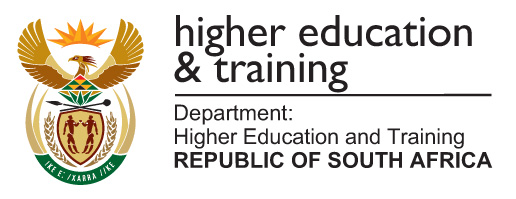2018 Central Application Clearing House (CACH)
2018 Central Application Clearing House (CACH) lebangCACH is a Department of Higher Education and Training service to assist young people by providing career advice and support.
 What is the Central Application Clearing House?
What is the Central Application Clearing House?

The Central Application Clearing House (CACH) was created by the Department of Higher Education and Training to assist prospective students who want to enter the Post-School Education and Training (PSET) System but might be facing a situation whereby they:
- Applied on time to their institution of choice but their application was declined and now it is too late to apply elsewhere.
- Did not apply because they did not meet the entry requirement based on their Grade 11 results but find that their Grade 12 results meet the entry requirements.
- Did not apply on time for one reason or the other or did not apply at all.
- Have no clue what to study after completing matric.
- Have an idea what to study but are not sure if their choice of study is right for them.
Services offered by CACH
- Applications for PSET learning opportunities (universities, universities of Technology, technical and vocational education and training colleges and Sector Education and Training Authorities.
- Information about financial aid.
- Career development services (guidance, information, advice and career planning/information on funding and financing options).
- Artisan support (National Artisan Development Support Centre).
The CACH service starts on 3 January 2018, shortly before the NSC examination results are released, and will operate until the end of
February 2018.
How does CACH work?
Phase 1: Students who have not received an offer of a space by the institutions they have applied for, or who are looking for PSET learning opportunities, can contact CACH via a toll free number (call 0800 356 635), the website (www.dhet.gov.za) or via a standard SMS (SMS name and ID to 49200) or they can register online. You can also find out more on their via Facebook page which is (CACH_SA)
Phase 2: The agents will call a prospective student back free of charge, from the contact centre and register all requested details on the CACH database, indicating the learner’s chosen field of study and the province they wish to study in.
Phase 3: The applicant’s personal details and matric results will be verified and automatically transferred to institutions of higher learning for possible admission and placement.
Phase 4: The CACH service will verify the learner’s information and forward it to institutions that still have available places. Where places exist and applicants meet the requirements, institutions will contact applicants directly to offer them available places.
Points to note
- CACH cannot guarantee any applicant a space to study.
- CACH cannot determine when the institutions will contact the applicant for possible placement.
How does CACH assist applicants who are not sure of what to study or those who do not meet the requirements to enter the PSET system?
The CACH service works in collaboration with the National Career Development Services (CDS) which assists in providing comprehensive career information and advice on:
- Careers & learning pathways
- Subject choice.
- Information on supplementary exams
- Matric upgrades.
- Study opportunities offered by the PSET system.
- Funding and financing options
- Information on applications processes and closing dates.
- Second semester application and registration dates.
Anyone who is interested in the services offered by CDS may contact the CDS Helpline through the following channels:
- SMS your question or send a ‘please call me’ to 072 204 5056, or
- Call 086 999 0123, which is a call share line, from Monday to Friday between 8:00am and 4:30pm,
- Email careerhelp@dhet.gov.za,
- Visit the office of the CDS at 123 Francis Baard Street, Pretoria,
- Facebook at www.facebook.com/careerhelp, or
- Twitter at www.twitter.com/rsacareerhelp
Government funding opportunities?
There are different funding opportunities available for studies at higher institutions of learning. These are offered by: Funza Lushaka Bursary Scheme, National Student Financial Aid Scheme, the Rural Education Access Programme, Department of Social Development, Department of Science and Technology and Department of Health.
Who should apply for the financial aid?
South African learners who would like to study at higher institutions of learning are invited to visit the Financial Aid Office at the institution of their choice.

